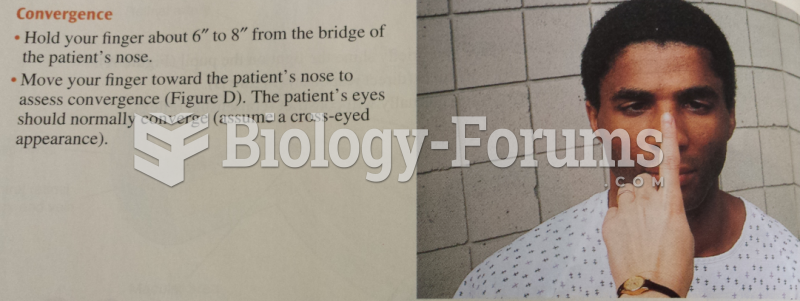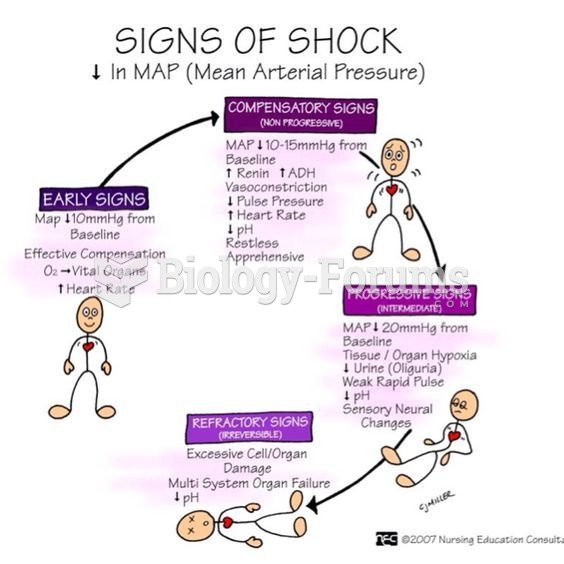Answer to Question 1
D
Feedback
A Incorrect. Clinical manifestations of congenital hypothyroidism do not include recessed jaw or delayed eruption of teeth, but may include feeding difficulties.
B Incorrect. Clinical manifestations of congenital hypothyroidism do not include low-set ears, wide-set eyes, a particularly wide face, and occasionally polydactylism.
C Incorrect. Clinical manifestations of congenital hypothyroidism do not include exophthalmia, rapid pulse, elevated blood pressure, diarrhea, jitteriness, and difficulty sleeping at night.
D Correct. Congenital hypothyroidism, a disorder present at birth, is a reduced rate of metabolism caused by a low concentration of circulating thyroid hormones. Clinical manifestations may include pallor, hypothermia, enlarged tongue, hypotonia, hypoactivity, feeding difficulties, delayed mental responsiveness or dull expression, cool, dry, scaly skin and swollen eyelids.
Answer to Question 2
C
Feedback
A Incorrect. We don't let our child play with other children unless the caregivers assure us they are not ill is not the statement by the caregivers of a preschooler that indicates they comprehend how best to decrease the incidence of illnesses in their child.
B Incorrect. Our child's temperature is taken every morning and every night, and if it is elevated, we call the health care practitioner is not the statement by the caregivers of a preschooler that indicates they comprehend how best to decrease the incidence of illnesses in their child.
C Correct. We make certain that our child washes her hands after using the bathroom and before eating is the statement by the caregivers of a preschooler that best indicates they comprehend how best to decrease the incidence of illnesses in their child.
D Incorrect. Our child takes a vitamin pill every day, eats a balanced diet, and takes sufficient fluids is not the statement by the caregivers of a preschooler that indicates they comprehend how best to decrease the incidence of illnesses in their child.







